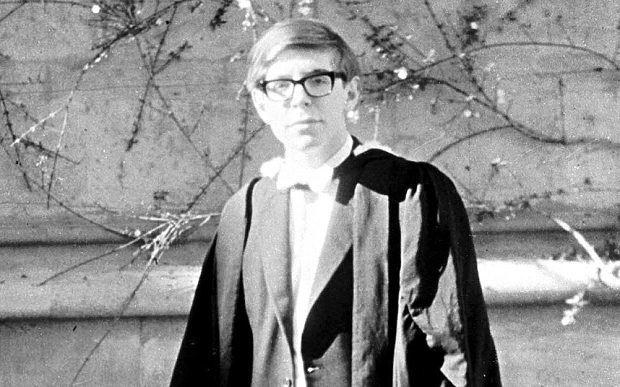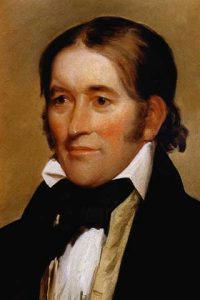With a heavy workload, financial stress, and balancing a social life, college can at times seem like a drag. Is the stress and hard work of all of this in college really worth the piece of paper at the end of these four or possibly six or eight years of toil? Just as millions of college students have experienced, renowned physicist Stephen Hawking also struggled to find meaning in his education. It is hard to believe that someone that is largely considered one of the greatest thinkers of modern times could possibly think this of his college years. When your life is put on a timer, school is the last of your priorities.

At only seventeen years old, Stephen Hawking entered the prestigious Oxford University and wanted to study physics and math, but to keep his father happy he ended up studying physics with chemistry rather than mathematics. During his first year, Hawking battled with feelings of isolation, as he did not make many friends, as his classmates were much older than he was.1 He thrived but was not very happy most of the time he was there. Loneliness is a very common thing for college students to go through, as for many, it is the first time away from home. Frankly, adjusting can be difficult, but more so at such a competitive school like Oxford.
However, things began to look up for the future scientist as, during his last year an an undergraduate, he joined the rowing club and went to parties with this friends.2 With his undergraduate degree in the books, Hawking turned his focus on cosmology, a sub-section of astronomy that is dedicated to discovering the origins of our universe. When he began his graduate career in the mid-sixties, Hawking slowly began to lose control of his body. For some reason, he was getting clumsier and clumsier, and fell for no reason at all.3
After a visit with a specialist, Hawking was diagnosed with amyotrophic lateral sclerosis, otherwise known as ALS or Lou Gehrig’s disease. The disease slowly breaks down the tissue in the nervous system that affects movement.4 While brain function was not affected at all, Hawking slowly but surely would lose control of his body until he died. After his diagnosis, he was only given two-and-a-half years to live.5 His new-found academic happiness was short-lived as he was now living only to die. His years as an undergraduate were now seemingly wasted, as he could not finish his PhD at his new school Cambridge in the limited amount of time he had left.

While initially depressed, a series of events led Hawking to use his limited time wisely. First, while in the hospital, he saw a young boy across from him die from leukemia, which made him realize that while he may have it bad, others have it a lot worse.6 Secondly, he had a dream that he was going to be executed, and he came to the realization that, while he was initially bored with life, there was still a lot left that he wanted to do.7 Lastly and most importantly, he became engaged to his first wife, Jane Wilde. Reflecting back on her significance, Hawking said, “the engagement changed my life. It gave me something to live for. It made me determined to live. Without the help that Jane has given I would not have been able to carry on, nor would I have had the will to do so.”8 Cambridge wanted to help Hawking continue his work, and while they could not make the exception of letting him get his PhD early, they helped in the quality of his life by helping him find closer housing, since Hawking could no longer walk far.9
His disease developed much slower than expected, and with everything falling into place for Hawking, he began making his landmark discoveries in the fields of cosmology and astrophysics. He suggested that the universe must start at a singularity (a point in time where the matter in the universe is infinitely dense) and from then on explodes with a “big bang.”10 Backed by Einstein’s theory of general relativity, it was very difficult to argue with the math behind the landmark theory.

A major part of Hawking’s life was that he wanted to make physics accessible to the everyday person. With this in mind, he wrote books such A Brief History of Time and Black Holes and Baby Universes, as well as help write and produce science movies such as The Theory of Everything. He also refused to let his disability stop him from doing whatever he tried, and to live as normal a life as possible, and take as many opportunities as he could.11 Sadly, we lost a great mind as he passed away on March 14, 2018, which just so happened to coincide with Einstein’s birthday. Hawking defied odds throughout his career as he outlived his initial “death sentence” by more than fifty years. While he can no longer provide further discoveries, he has brought inspiration to a new generation of physicists. Many look up to Newton and Einstein and say they want to be like them, but now many look up to Hawking and say the same.
- Major 21st-Century Writers, 2005, s.v. “Hawking, Stephen W(illiams) (1942-).” ↵
- Major 21st-Century Writers, 2005, s.v. “Hawking, Stephen W(illiams) (1942-).” ↵
- Major 21st-Century Writers, 2005, s.v. “Hawking, Stephen W(illiams) (1942-).” ↵
- L. Fleming Fallon Jr, An Overview of Lou Gehrig’s Disease (ALS), in Lou Gehrig’s Disease, edited by Sylvian Engdahl (Detroit: Greenhaven Press, 2012), 16-24. ↵
- Major 21st-Century Writers, 2005, s.v. “Hawking, Stephen W(illiams) (1942-).” ↵
- Stephen Hawking, A World Famous Scientist Tells about His Life With ALS, in Lou Gehrig’s Disease (Detroit: Greenhaven Press, 2012), 101. ↵
- Stephen Hawking, A World Famous Scientist Tells about His Life With ALS, in Lou Gehrig’s Disease (Detroit: Greenhaven Press, 2012), 101. ↵
- Major 21st-Century Writers, 2005, s.v. “Hawking, Stephen W(illiams) (1942-).” ↵
- Stephen Hawking, A World Famous Scientist Tells about His Life With ALS, in Lou Gehrig’s Disease (Detroit: Greenhaven Press, 2012), 103. ↵
- UXL Encyclopedia of World Biography, 2003, s.v. “Hawking, Stephen,” by Laura B. Tyle. ↵
- Stephen Hawking, A World Famous Scientist Tells about His Life With ALS, in Lou Gehrig’s Disease (Detroit: Greenhaven Press, 2012), 100. ↵



63 comments
Belene Cuellar
I’ve actually seen the movie and it was just so inspirational to see him overcome his challenges despite battling his disease. As brilliant as he was he still went through hardships, but he never let himself get brought down by anything. This article did a good job with focusing on one part of his life and give important details about his life.
Sebastian Carnero
It is inspiring how he could overcome the depression given by the diagnoses with just will to live. He supposedly had 2 years, but he decided he’s not dead, so he can do what he wants. I think it is very noble of him to try to get normal people to share his ideas and passion as a big part of his career, all while confronting his disease. Hawking work teaches people love for work, dedication and the fruits of being perseverant.
Caden Floyd
I had no idea Stephen Hawking went through so many hardships in his lifetime. I knew he had ALS and that is already enough to make someone give up, but loneliness and isolation can lead to some pretty bad stuff as well. It is inspiring that through all of this he still was able to get his PhD. He went on to get engaged and come up with the Big Bang Theory which broke grounds in the scientific field. I never really knew much about Stephen Hawking, but this article really explains his college and scientific career really well.
Alyssa Garza
This article was very intriguing it’s making me think about the reason I’m attending college. I love that he just didn’t give up on his dreams and that he went to go chase them with the amount of time they gave him to live. He ended up live past what the time doctors gave him to live and I’m sure he enjoyed his life accomplishing what he could in his life time.
Raymond Munoz
For me, I believe that the true measure of a man is not in his accomplishments but in his character. Steven Hawking being “sentenced” to only live two and half years while just starting college is a scary thing, but then he went on to live his life the way he wanted and he made all the way to 2018. Persevering through life against everything that people are telling you is an incredibly strong stature of character. Now, I’m not big on science so I will never be able to aspire and truly understand his scientific achievements, but I do understand his character and hope that one day I can have half of his strength.
Indhira Mata
I had heard of this great mind doing many discoveries named Stephen Hawking, but I never knew his story. I am so inspired by his story and I understand why many others are too. Even those who do not have the same field as him can learn from his determination, I know I did. Being diagnosed with the disease, and given only two years most would just given up. His will was most probably the reason he lived so long passed his given death sentence. I think the biggest take away I got from this article is that so many discoveries can be found under the difficult circumstances.
Kathyleen Lauriano
I didn’t really know who Stephen Hawking was until this past year. This article really made me feel like I know who he was better. The fact that he didn’t let his disease slow him down shows that he was determined to make whatever time he had left memorable. Hawking had a huge impact in the science world and will forever be remembered for his work.
Jorge Martinez
This was an amazing piece about an extraordinary person who expanded our knowledge of the universe. Stephen Hawking was truly a genius and a leader in his field. It is a shame that he acquired a disease that would be the cause of his death. I wish the author brought to light that Hawking died on Pi Day, a mathematical holiday, on top of it being the same day as Einstein’s birthday.
Hailey Rodriguez
Before reading this article, I did not know Stephen Hawking’s story. It is crazy that he attended such a prestigious university such as Oxford at such a young age. It is truly inspirational to read that Hawking accomplished such amazing things through his struggle with health. His death earlier this year was one of the most devastating moments in history.
Eric Ortega Rodriguez
This is a truly inspiring story. Stephen Hawking is a prime representation of someone overcoming obstacles which are often thrown at us throughout life. I find it interesting that Hawking went through many physical limitations as time passed, yet his mind was on the opposite side of the spectrum. His desire to learn grew. It is sad to see one of the greatest minds of our generation pass away. His work will be carried out through generations to come, inspiring young minds to explore and keep fighting through the difficult times.